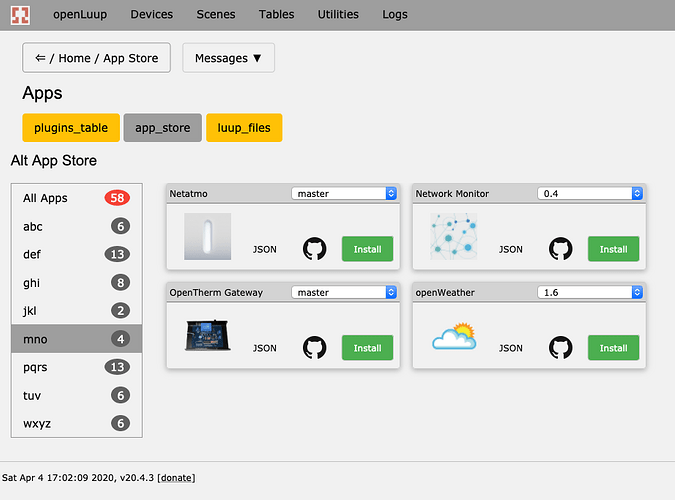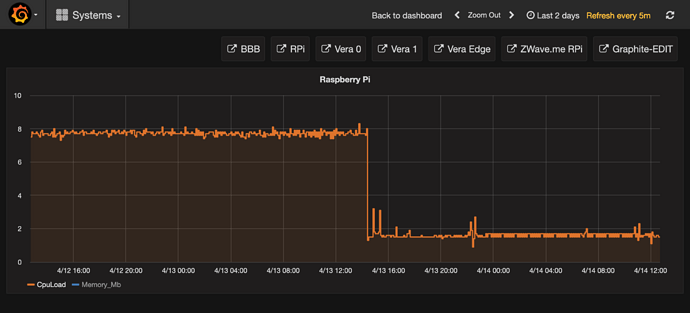Development Branch: 2019 Release 7.25
This release contains some significant updates to a number of modules.
The most obvious changes are updates to the default console L&F. The page and menu layouts are something of an homage to AltUI, without which openLuup would not exist in its current form. This is not to be confused with a replacement for AltUI… it is not. The console has always been about viewing and understanding some of the internals of the system and installed plugins, as an aid to debugging. It is not about presenting your devices in a convenient form for controlling your home, and pages are not dynamically updated as device variables change.
Again, taking another cue from AltUI, the Ace editor is used extensively to view internal structures and files in Lua, XML, and JSON formats. Ace may be dynamically downloaded from a Content Distribution Network (default is Cloudflare,) or loaded into a local folder which may be used offline. If neither is available, the system will default to simple HTML textarea elements.
Internally, the XML module has, once again, been refactored, this time to unify parsing and serialisation of XML, HTML, and SVG. Many device files needed by the basic system are generated directly at startup using the internal DOM (Domain Object Model) or JSON encoder. This sets the scene for a fully stand-alone system (without an attached Vera) which at the moment is only possible after downloading Vera device files.
Session cookies are used to persist a number of openLuup states, such as which room to view and sorting/filtering options. A total of three Lua Test windows allow parallel debugging of different snippets of code. A key point here is that the test code is actually persisted in the user_data.json file, and not the web browser, so different sessions from different browsers will actually share the same code, which is checkpointed with the rest of the user data (every hour, or at system reload.)
The underlying openLuup engine is little changed, apart from some preparatory work to improve the HTTP server, so I’m hoping that there are no bugs introduced which should affect the regular running of the system.
As ever, feedback welcomed.

